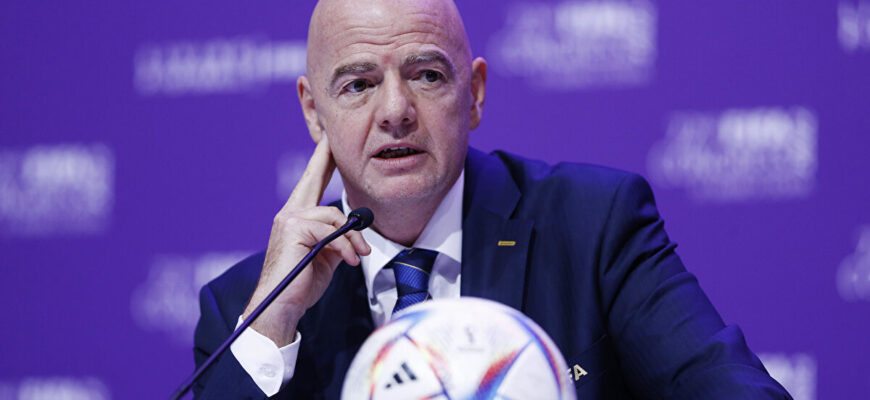ROME – In a direct and unvarnished address from the Eternal City, FIFA President Gianni Infantino recently laid down a gauntlet for Italian football, issuing what many are interpreting as a definitive ultimatum on the future of its aging stadium infrastructure. Speaking at the General Assembly of the European Football Confederations (EFC) at the prestigious Cavalieri Waldorf Hotel, Infantino’s message was clear: for a nation synonymous with footballing passion and history, the time for modern stadiums is not just now, but yesterday.
The Stadium Conundrum: A Matter of National Pride?
Infantino, an Italian himself, did not mince words when discussing the state of Italian football venues. His declaration was stark:
“If we can`t do it in Italy, everyone should just close up and go home.”
This wasn`t merely a casual observation; it was a potent challenge to a country whose footballing legacy is as rich as its ancient ruins. Italy, a four-time World Cup winner, currently grapples with facilities that often fall short of modern European standards, impacting fan experience, club revenues, and global appeal.
The sentiment, while perhaps a touch dramatic, highlights a critical point: if a nation deeply embedded in football`s DNA cannot muster the will and resources to build world-class venues, what hope is there for others? It’s a rhetorical question, of course, but one delivered with a pointed irony, suggesting that the very foundation of Italian football’s future depends on this seemingly fundamental task.
Yet, Infantino expressed optimism, believing that Italy, with its famed creativity and resources, possesses the inherent capability to rise to the occasion. He cited promising developments, including a recent presentation for a significant stadium project in Milan and encouraging words from the Mayor of Rome, hinting at movement after years of stagnation. The call is for Italy to not just build stadiums, but to construct the most beautiful arenas in the world, befitting its status as “the country of football.”
Beyond the Boot: Global Governance and Player Welfare
While the stadium discourse dominated headlines in Italy, Infantino`s address also touched upon broader themes central to FIFA`s global governance. He responded to comments by football icon Zlatan Ibrahimović regarding national team call-ups, underscoring FIFA`s ongoing commitment to player welfare. The push to optimize international football calendars is a continuous effort, aimed at protecting athletes from excessive physical demands while maintaining the competitive integrity of both club and international football. It`s a delicate balancing act, akin to juggling priceless, fragile antique vases – each fixture a potential masterpiece, each injury a shattering loss.
On the logistical front, Infantino reassured attendees about the upcoming World Cup in the USA, confirming robust relations with the American government and President, ensuring a seamless experience for participating teams and their supporters. The machinery of global football, it seems, is well-oiled, at least on the diplomatic stage.
The Global Game: Regulation vs. Deregulation
Another key discussion point revolved around the increasing trend of domestic league matches being played internationally, such as the recent Serie A fixture between Milano and Como held in Australia. While acknowledging the commercial allure and global reach such initiatives offer, Infantino articulated FIFA`s firm stance against unchecked expansion.
“We want everyone to play where they want, but we want one thing with rules. The deregulation in this field does not help anyone.”
This statement encapsulates FIFA`s philosophy: foster global engagement, yes, but within a structured framework. The fear of “deregulation” is not merely bureaucratic; it stems from a desire to preserve the sporting pyramid and ensure fair play, consistent standards, and equitable distribution of benefits across the entire football ecosystem. It`s about maintaining a delicate balance where commercial interests don`t entirely eclipse sporting integrity. A single game abroad might be an interesting novelty, but a systemic shift without clear guidelines could unravel the very fabric that has made football the world`s most beloved sport.
A Future Forged in Steel and Strategy
Infantino`s visit to Rome underscored FIFA`s multi-faceted role: not just as a regulatory body, but as a strategic architect for global football. From challenging nations to modernize their core infrastructure to meticulously managing player well-being and orchestrating the sport`s global expansion, the organization navigates a complex landscape. For Italy, the message is clear: the ball is in their court, and the world is watching to see if the “country of football” can build a future as grand as its storied past.









